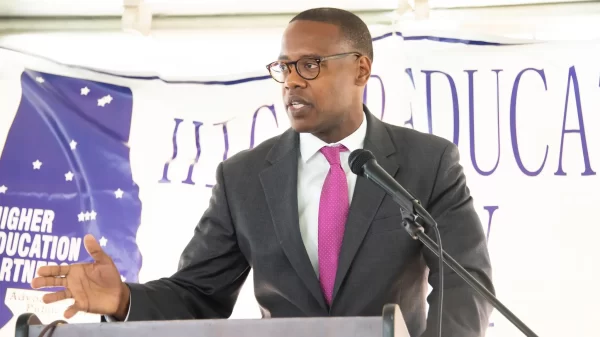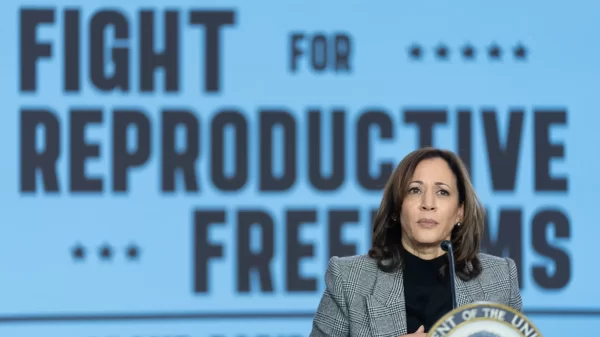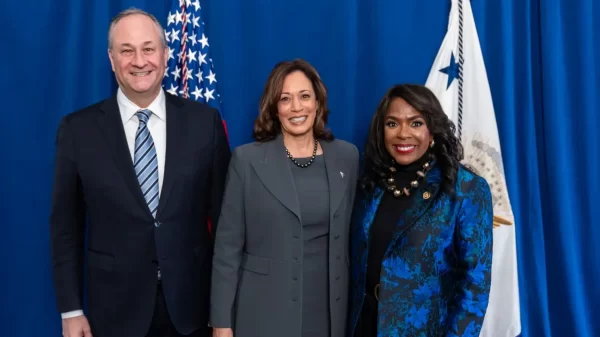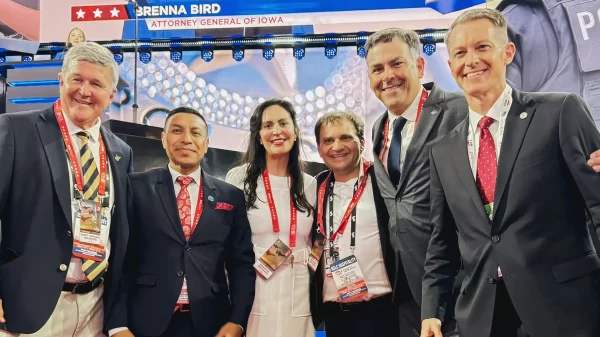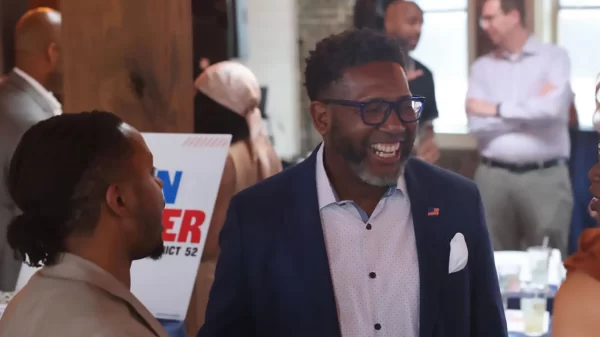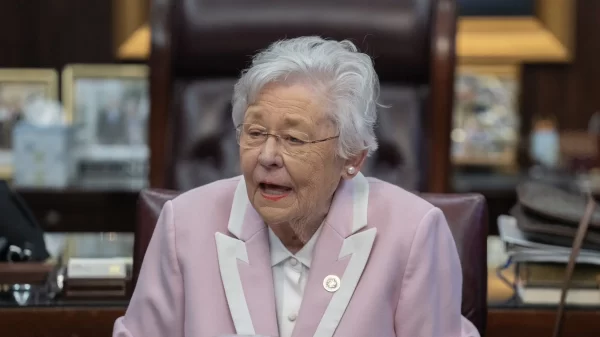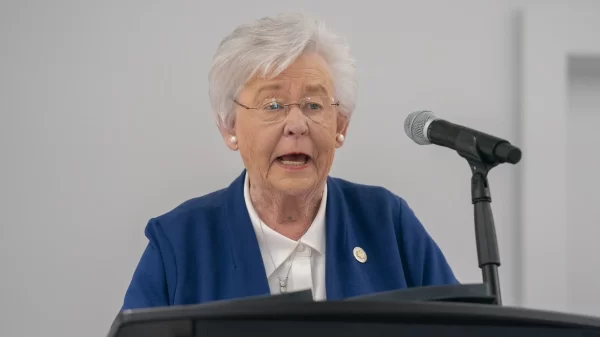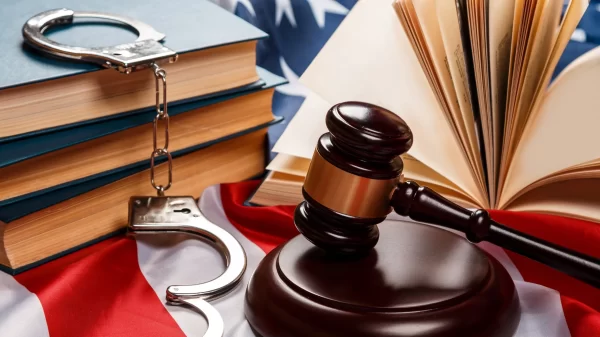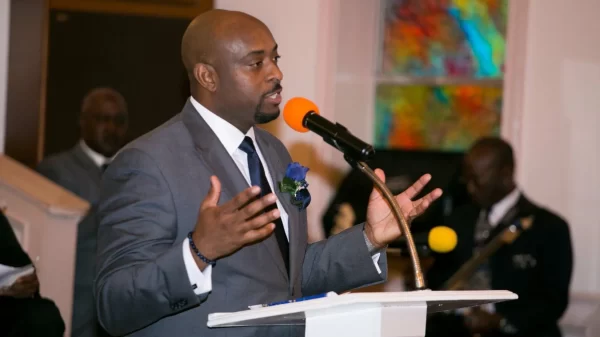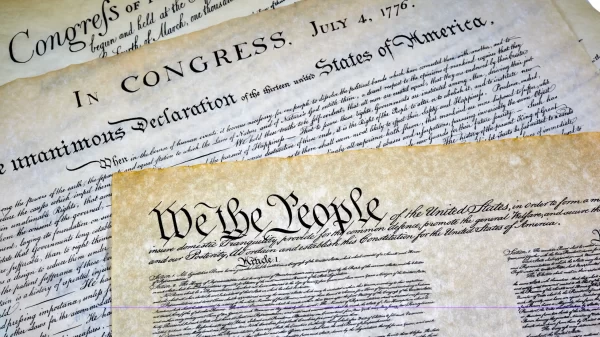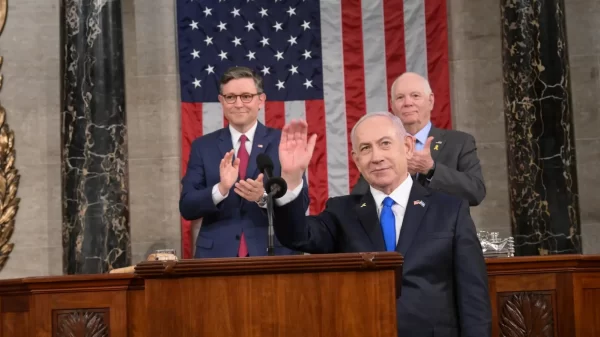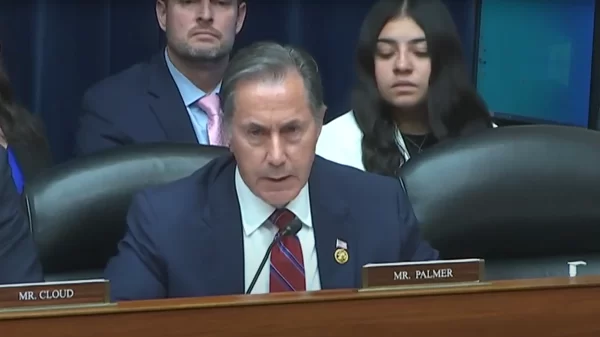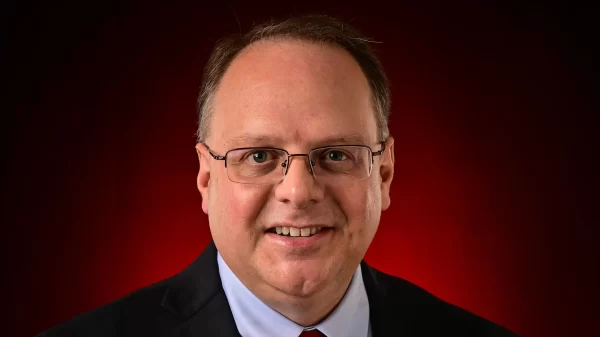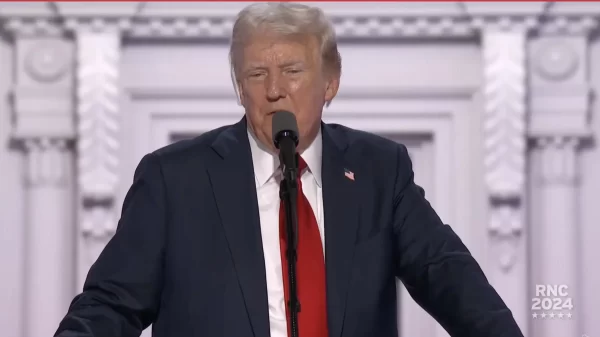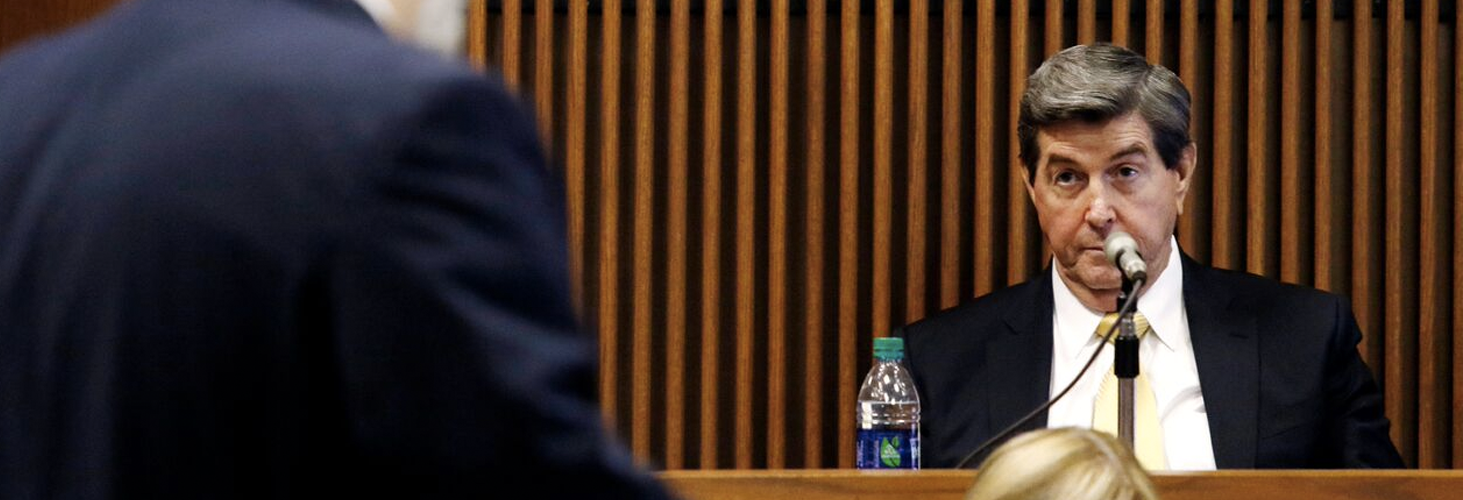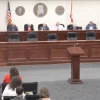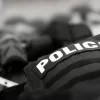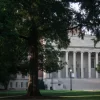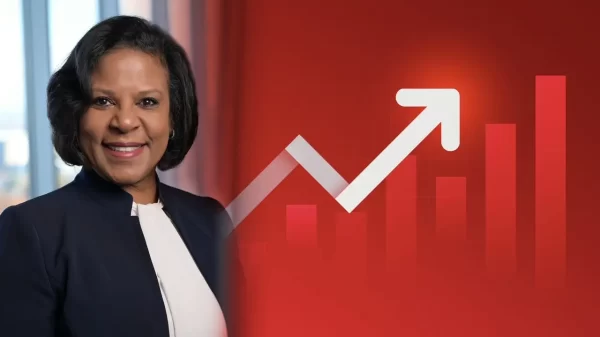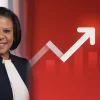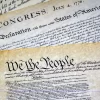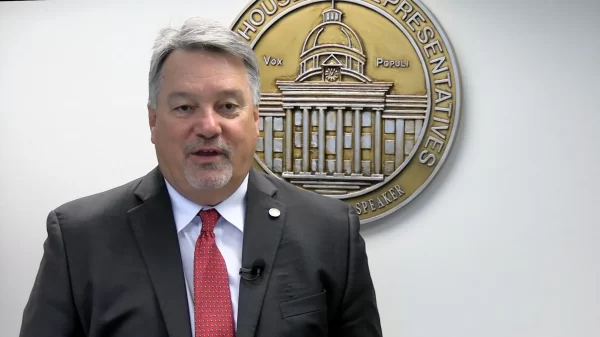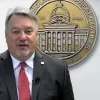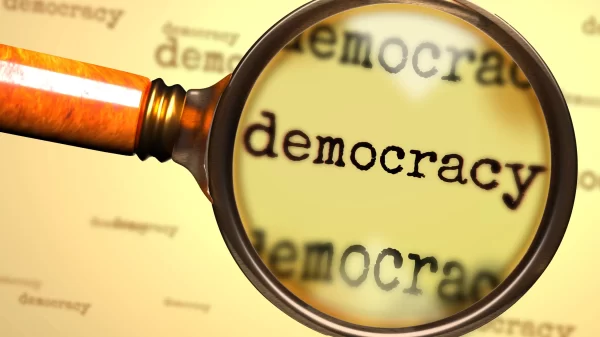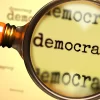By Bill Britt
Alabama Political Reporter
OPELIKA—Emails entered into evidence during former Gov. Bob Riley’s testimony on day nine, was a matrix of deals that benefited both Riley and Hubbard. Lead Prosecutor, Matt Hart, in email after email revealed a disturbing pattern where Riley would ask something from Hubbard, receive it, and vice versa, in a quid pro quo style transaction.
Under the Ethics Laws that Hubbard and Riley championed and passed, just one such action would result in a felony charge. These two men repeated the scheme numerous times.
Emails revealed Riley called bond dealer, Frazier Lanier, to get work for Hubbard. They also show Riley solicited Hubbard to arrange a joint session of the Legislature for the President of Airbus to speak, and in return, Hubbard asked Riley to help him contract Airbus’ printing business. Riley said that it would be better for Hubbard to try to get Wayne Smith’s hospital printing business instead, because there would be no conflict of interest.
In emails concerning the Paris Air Show, the prosecution displayed how Riley arranged for Hubbard and his daughter, Minda Riley Campbell, to meet his billionaire client, Singapore Industries, at their palatial chalet at the air show. He expressed to his client that Hubbard was there as Speaker of the House, and that he would be speaking on behalf of the State, to show appreciation for the company’s investment in Alabama. In return, emails show that Riley solicited partners at Singapore Industries to visit the Abbeville site, to aid Hubbard with his SEAGD business.
Other emails showed that Hubbard passed legislation that provided tax credits on shipping material for Singapore Industries in Mobile. He wrote to Riley saying his legal advisor, Jason Isbell, had placed the bill in the jacket, and that Riley’s client would be pleased. He even attached the language to the bill which Riley forwarded to the President of Singapore Industries. The bill Riley wanted for his client was passed by the State Legislature.
What became apparent, is that Riley and Hubbard were working in concert to aide each other financially. This was further evidenced by Hubbard’s weekly meetings with BCA’s chief lobbyist, Billy Canary.
Riley testified for nearly seven hours. In the first hour of direct examination by Hart, Riley was evasive, coy, and combative. When Hart asked Riley if he had ever warned Hubbard about crossing the line in the Ethic Code, Riley said he could not recall. When pressed by Hart he continued saying, “I don’t think so.” After repeating the question several different ways, Hart produced Riley’s Grand Jury testimony saying, perhaps it would refresh his memory.Riley was asked to look at one page of text, which he read in silence. It was a long period, more than three minutes before he acknowledged he had finished studying the page. Hart asked if that refreshed his memory. He said, “Yes.” Hart said, “Now, I’m going to ask you this question one more time: Did you ever warn Mike Hubbard about the Ethics Laws?” Riley sternly said, “Yes.” Then added, “This is what you do. This is what you did in the Grand Jury. You take things out of context.”
Hart immediately asked Judge Jacob Walker, III, to declare Riley a hostile witness. The Judge said he wanted to see how things would progress, and then there was a break.
After the break, a different Riley appeared. While seething underneath, he presented his answers calmly, without confrontation. His memory, however, continued to fail whenever there was a question that might implicate Hubbard in any wrongdoing.
During the five plus hours, Hart had Riley under direct examination. Hubbard’s attorney, Bill Baxley, repeatedly objected, but Judge Walker, on most occasions, overruled.
Hart took Riley through over 40 emails, which mostly centered around bills that would aid Riley’s clients, how Riley could help Hubbard develop businesses for SEAGD, and Hubbard’s continuing financial woes.
The emails revealed that Riley kept stringing Hubbard along with promises of opportunities, even telling Hubbard he now believed he had a “bullet-proof plan.”
Riley was asked whether Hubbard was at the Paris Air Show as Speaker of the House, and not working for some other entity. Riley answered saying that Hubbard is the Speaker of the House, he was the Speaker at the Paris Air Show, and that he is still the Speaker, parroting almost word-for-word the testimony given by his daughter, Minda Riley Campbell. When Hart asked Riley if he knew that Hubbard was being paid to be at the Paris Air Show by SEAGD he said, “Yes. And he should be.” However, when queried about Hubbard’s other clients, Riley said he did not know about APCI, Edgenuity, or Capitol Cups.
One reporter commented that Riley looked like a man whose grand scheme had been blown up by Hubbard’s greed, and he was trying to clean up the mess.
All of the Press Corps had a good laugh at what they are now calling, “The Riley pause.” Whenever a difficult question is asked, the pause comes and lasts for several seconds.
Baxley also had Riley read some pretty intense “bromance” letters between he and Hubbard. Even Riley displayed discomfort in reading them out loud.
Riley said he loved Hubbard like a son, and Hubbard, sentimentally, said Riley was like his father. But, emails showed that each man used the other to make money.

